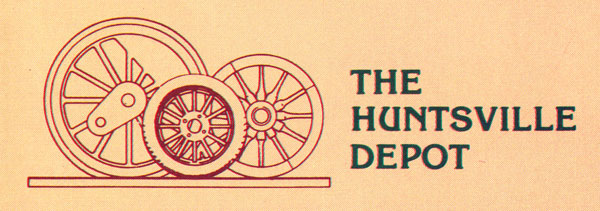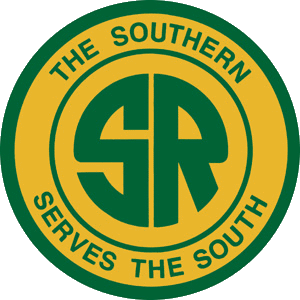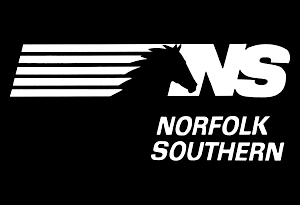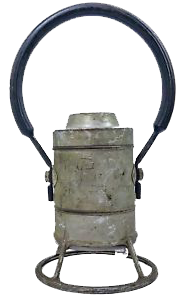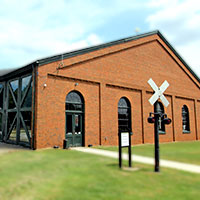 |
Huntsville Historic Depot Structures and Displays |
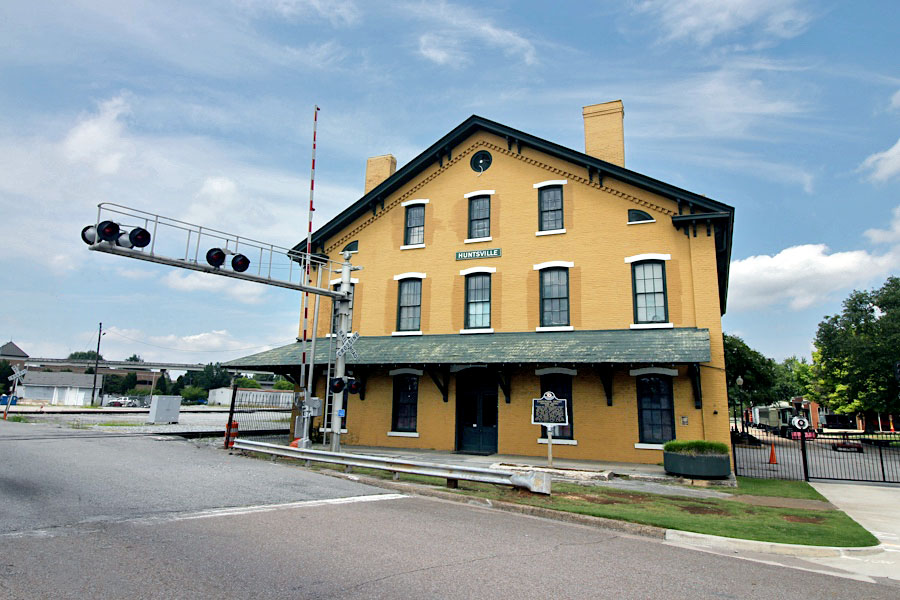
Huntsville, Al / Aug 2019 / RWH
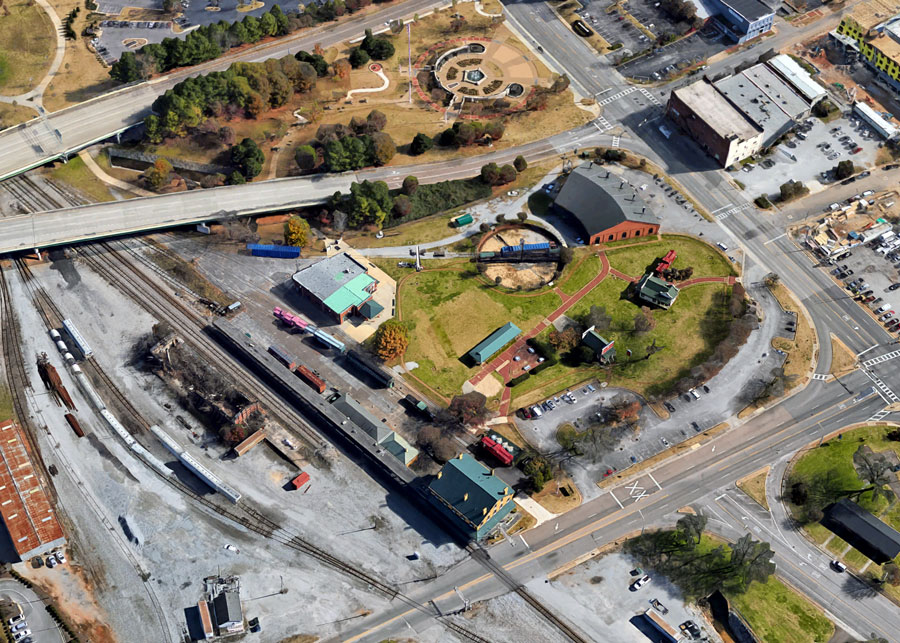
Google Maps
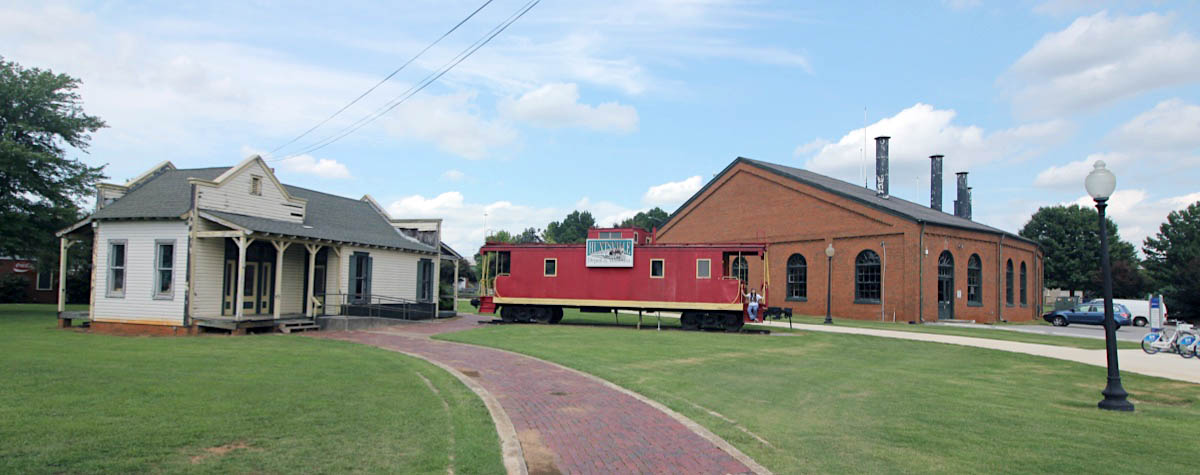
Huntsville, Al / Aug 2019 / RWH
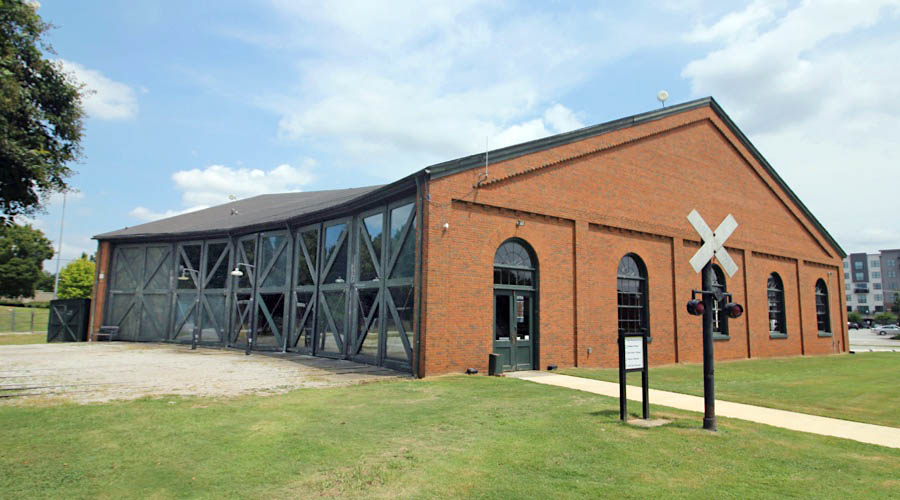
Huntsville, Al / Aug 2019 / RWH
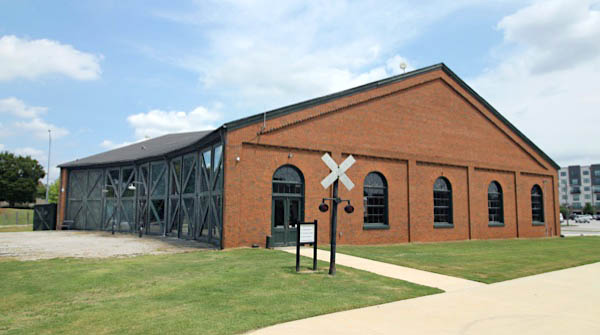
Huntsville, Al / Aug 2019 / RWH
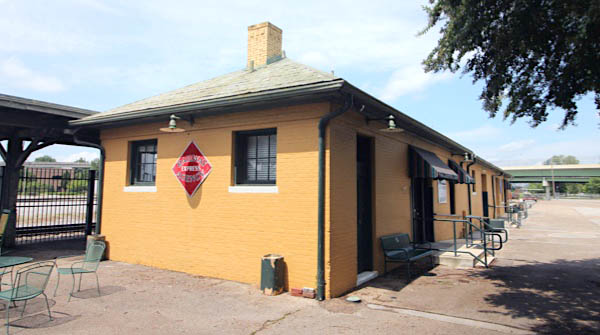
Huntsville, Al / Aug 2019 / RWH
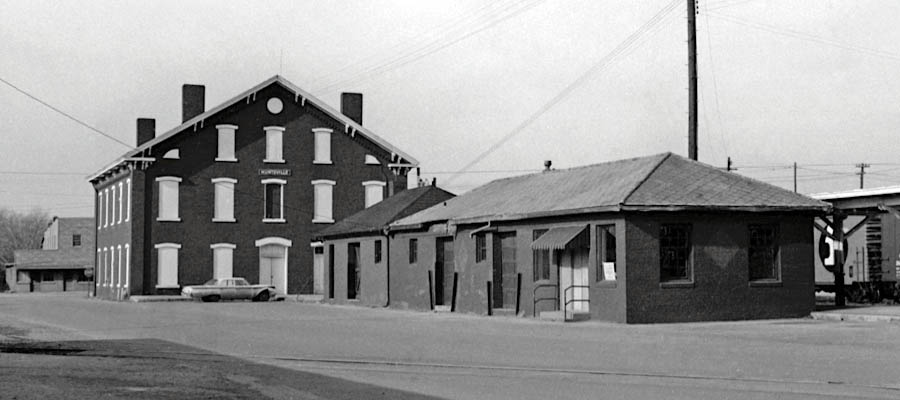
Huntsville, Al / Jan 1967 / JCH
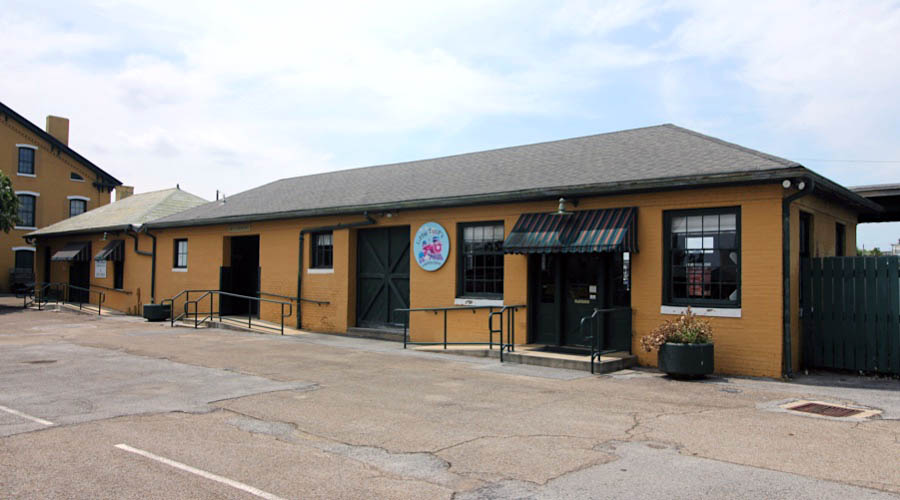
Huntsville, Al / Aug 2019 / RWH
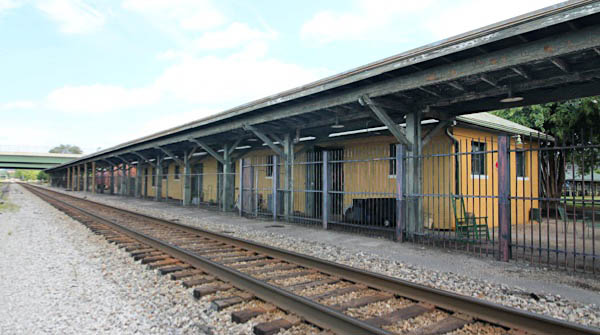
Huntsville, Al / Aug 2019 / RWH
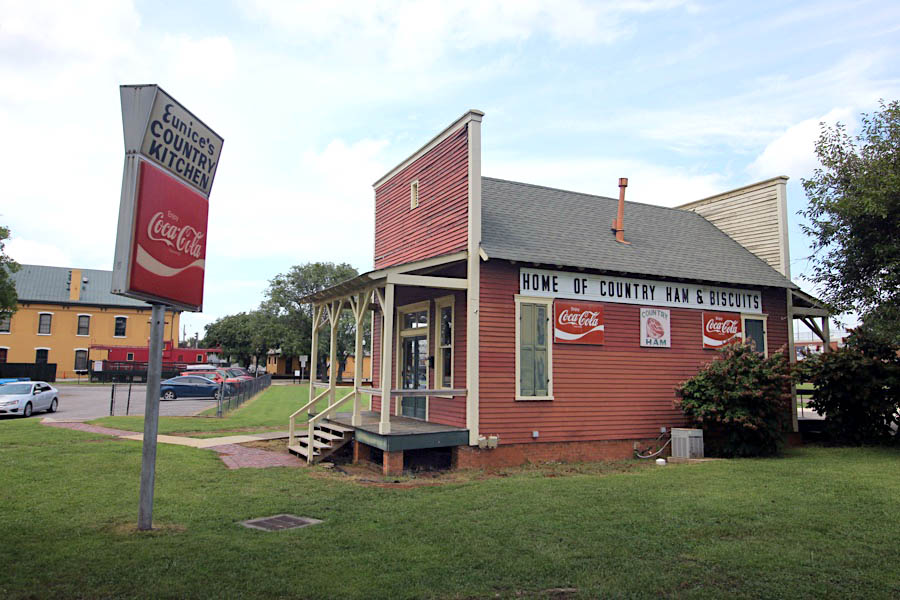
Huntsville, Al / Aug 2019 / RWH
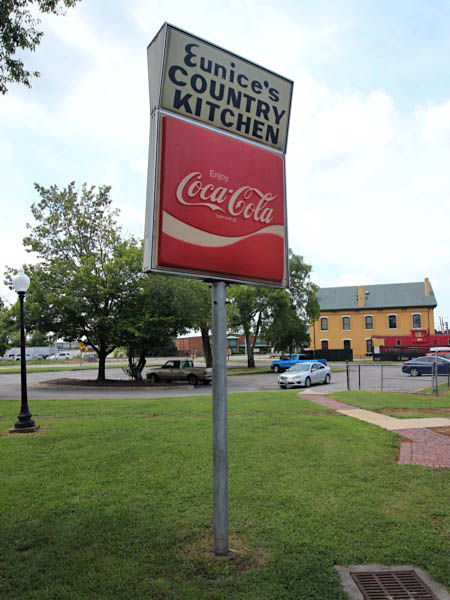
Aug 2019 / RWH
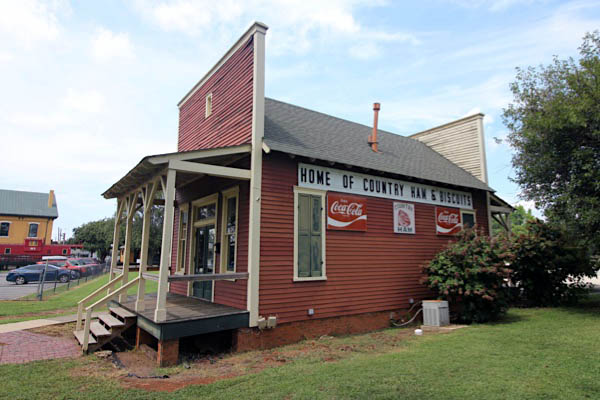
Huntsville, Al / Aug 2019 / RWH
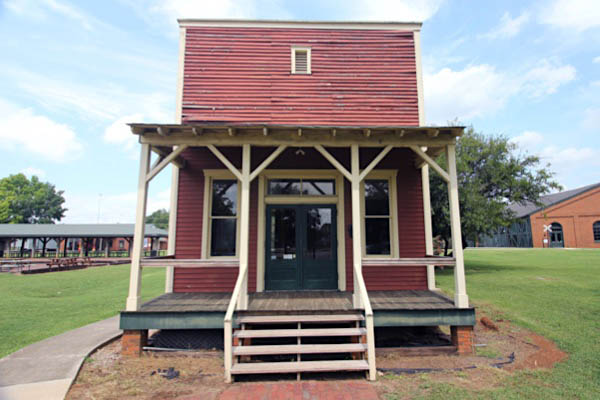
Huntsville, Al / Aug 2019 / RWH
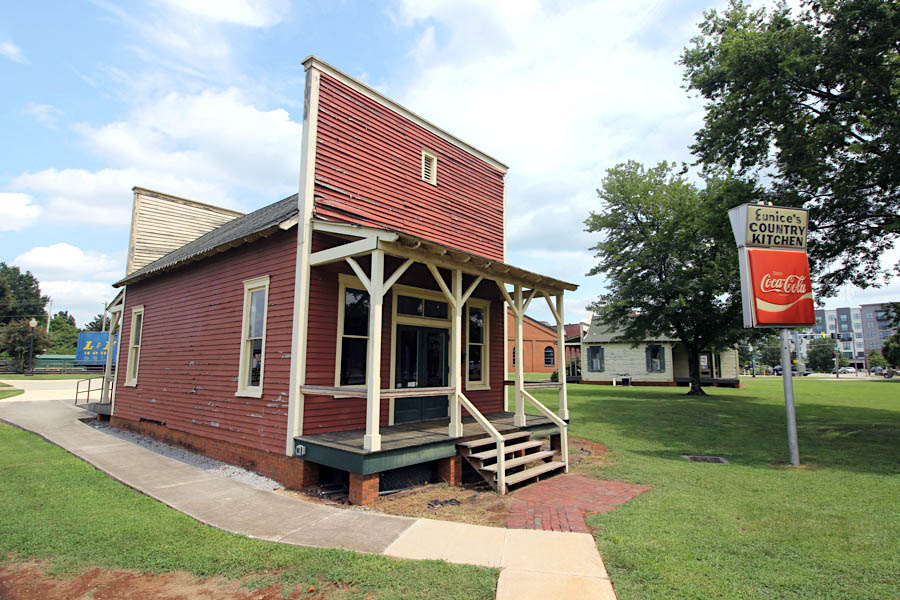
Huntsville, Al / Aug 2019 / RWH
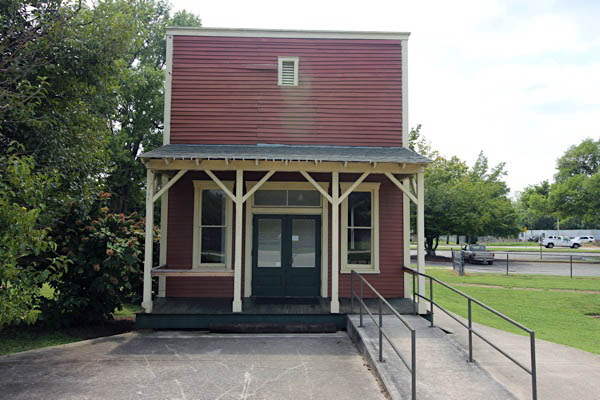
Huntsville, Al / Aug 2019 / RWH
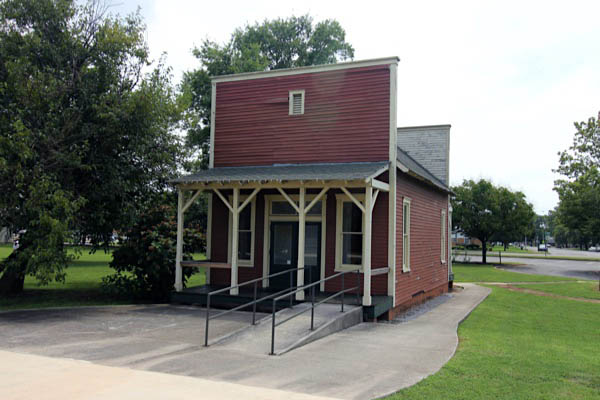
Huntsville, Al / Aug 2019 / RWH
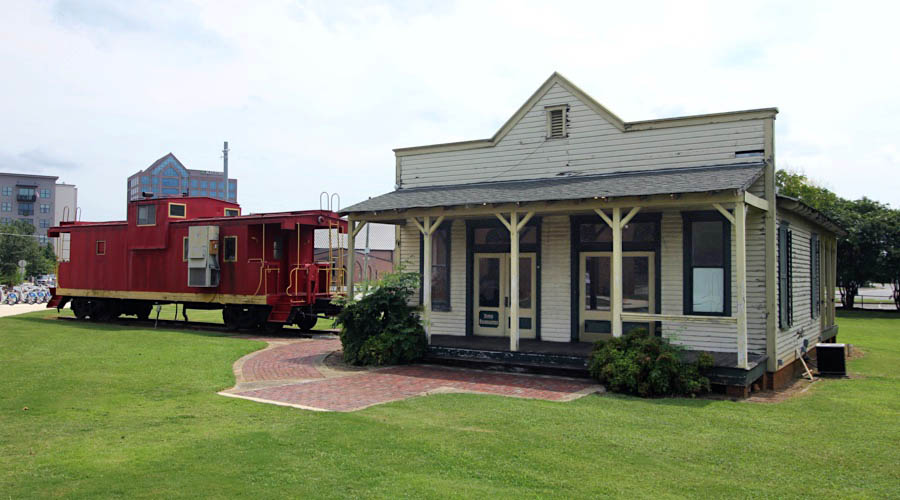
Huntsville, Al / Aug 2019 / RWH
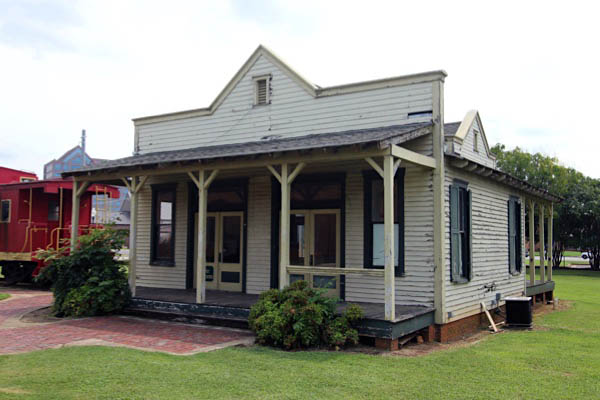
Huntsville, Al / Aug 2019 / RWH
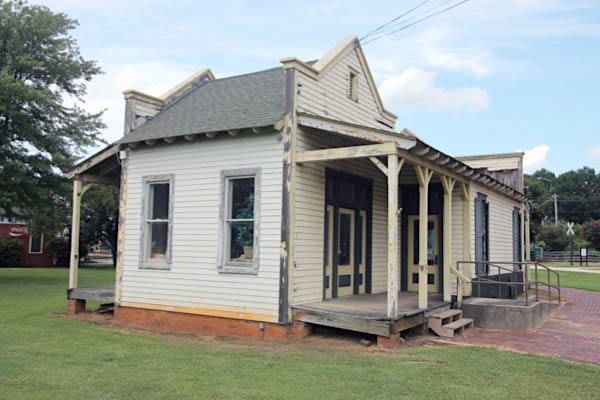
Huntsville, Al / Aug 2019 / RWH
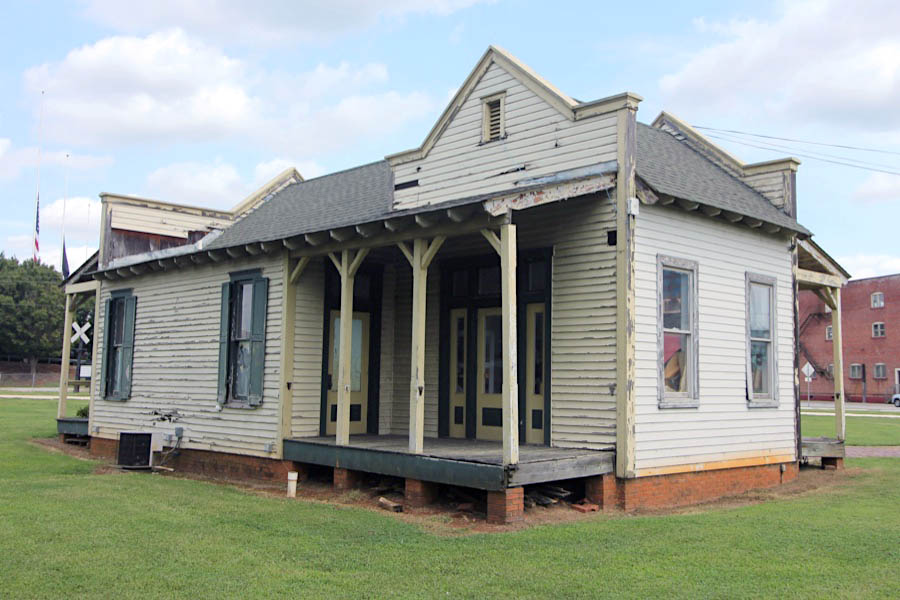
Huntsville, Al / Aug 2019 / RWH
Until recent years, a large freight station building sat across the Southern mainline from the Huntsville depot structure and the adjacent REA Express building (above). Although never a part of the museum, the building was a terrific example of early 20th century railroad support structures. Norfolk Southern eventually razed the aging structure.
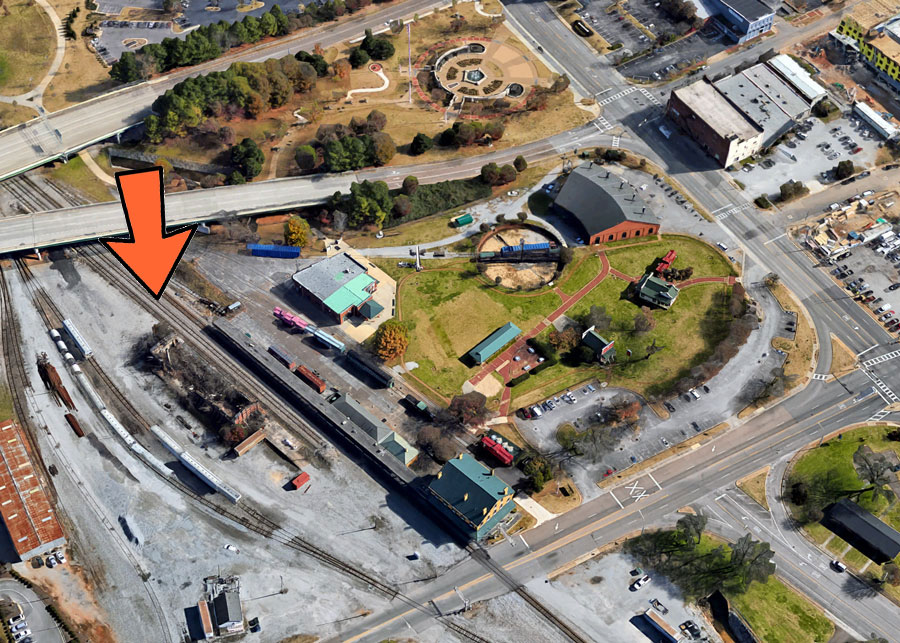
Google Maps / adapted RWH

Huntsville, Al / May 1999 / JCH
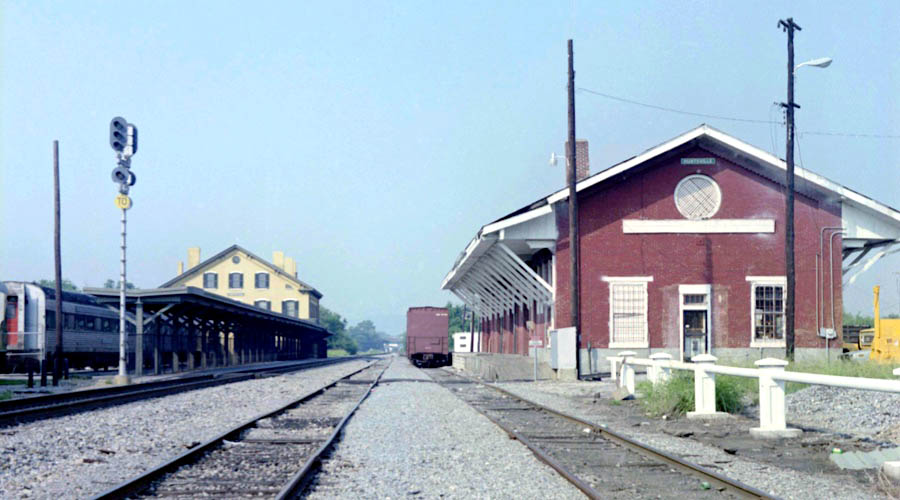
Huntsville, Al / Sep 1988 / JCH
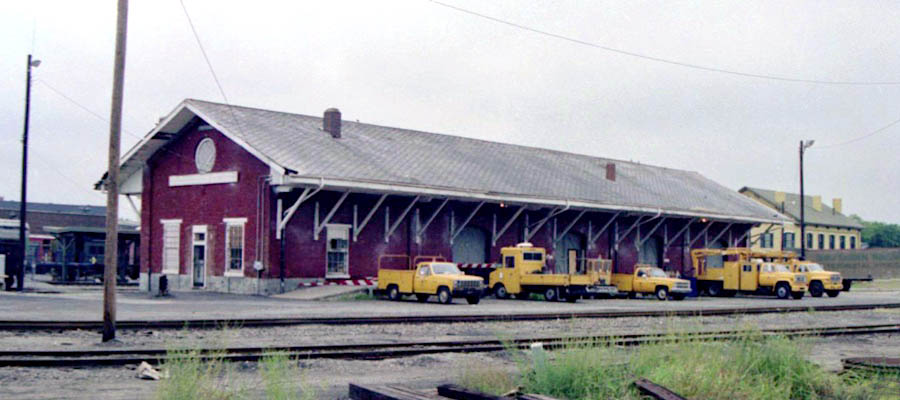
Huntsville, Al / Sep 1988 / JCH
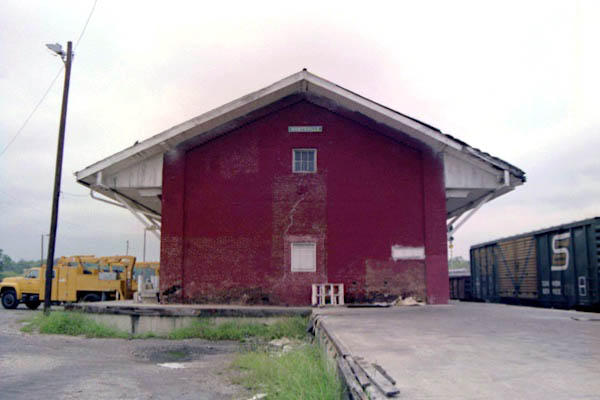
Huntsville, Al / Sep 1988 / JCH
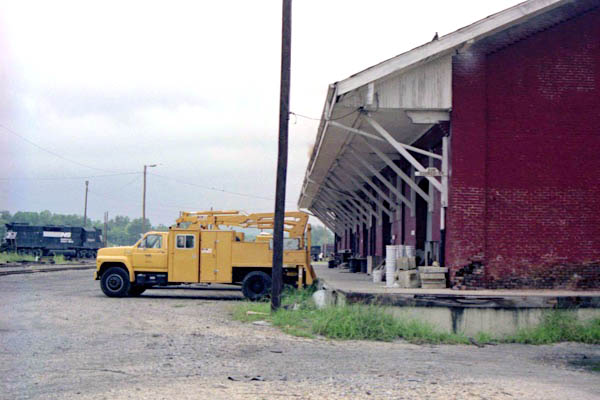
Huntsville, Al / Sep 1988 / JCH
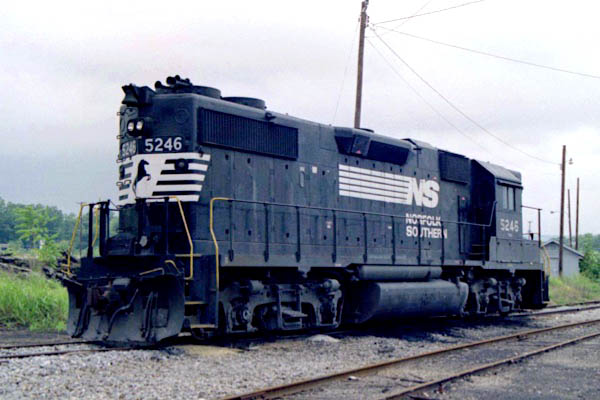
Norfolk Southern #5246
Huntsville, Al / Sep 1988 / JCH
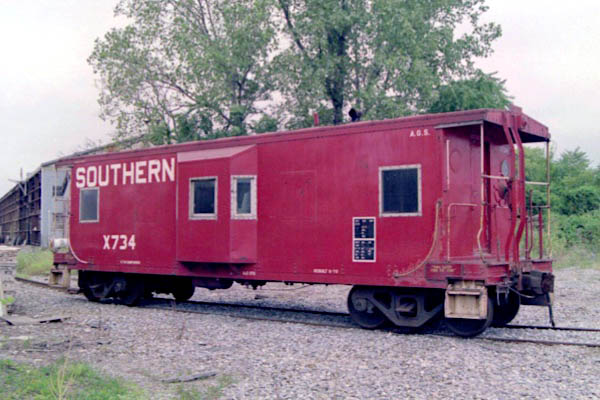
Southern Railway #X734
Huntsville, Al / Sep 1988 / JCH
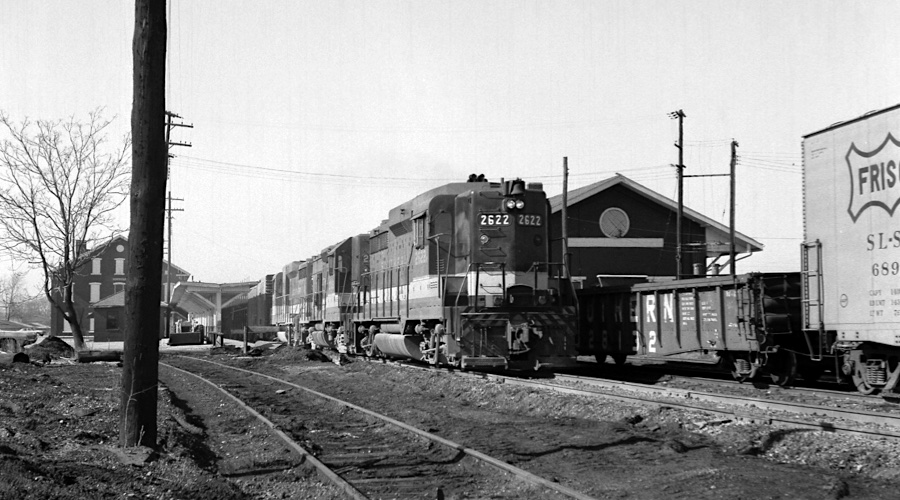
Huntsville, Al / Mar 1972 / JCH
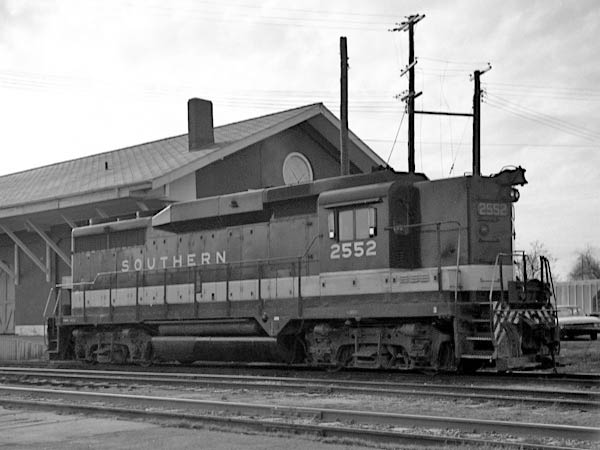
Southern Railway #2552
Huntsville, Al / Feb 1971 / JCH
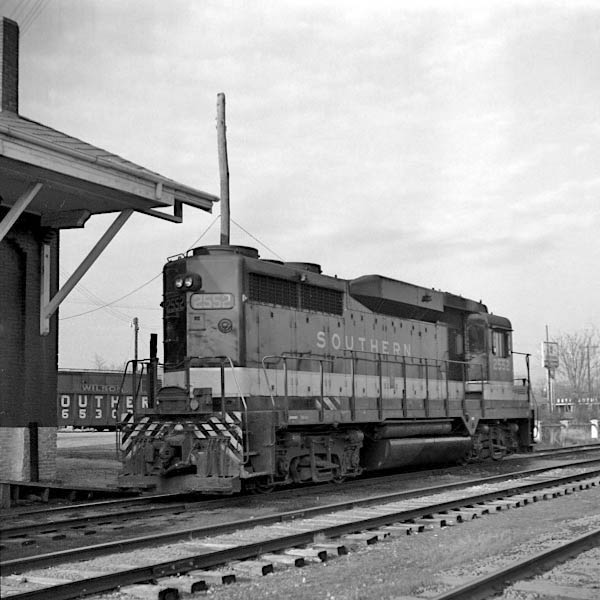
Feb 1971 / JCH
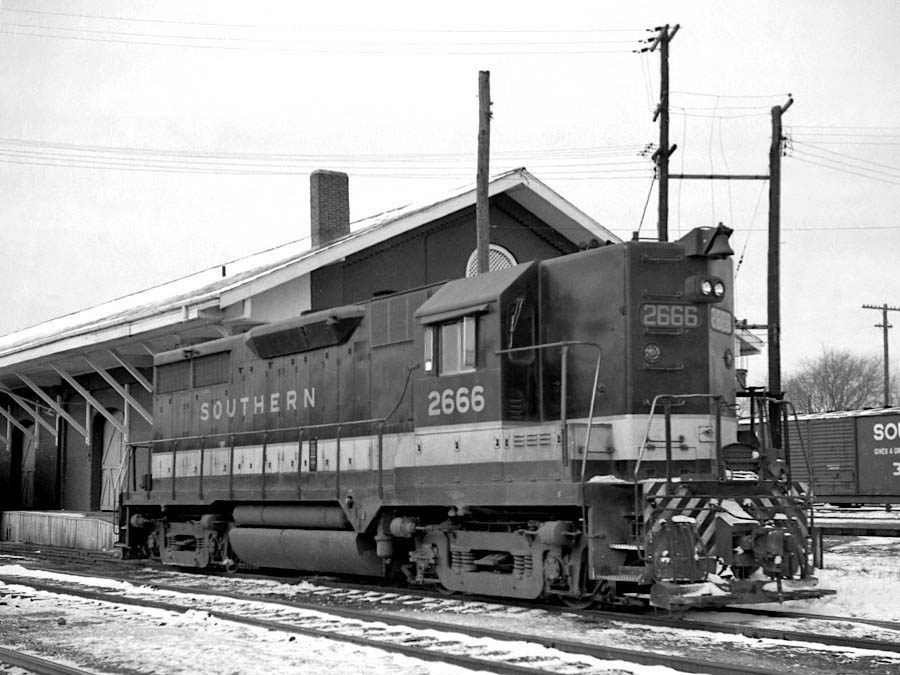
Southern Railway #2666
Huntsville, Al / Feb 1971 / JCH
 Hotel Russel Erskine
Hotel Russel Erskine
 lthough not related to the Huntsville Historic Depot and Museum, the Hotel Russel Erskine is only blocks away from the railroad and remains an interesting historical site in downtown Huntsville. John photographed the structure in the early 1970s, when still in service as a hotel.
lthough not related to the Huntsville Historic Depot and Museum, the Hotel Russel Erskine is only blocks away from the railroad and remains an interesting historical site in downtown Huntsville. John photographed the structure in the early 1970s, when still in service as a hotel.
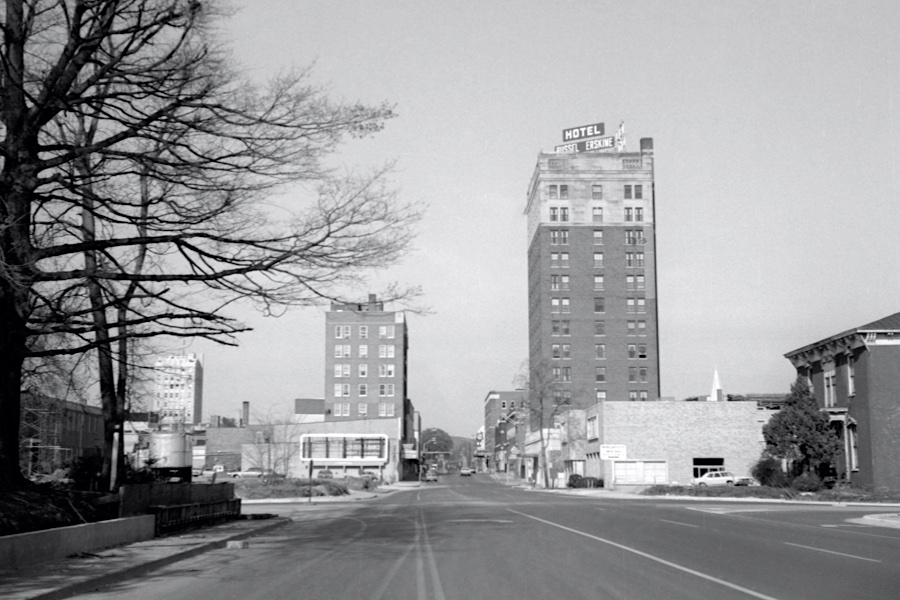
Huntsville, Al / Mar 1974 / JCH
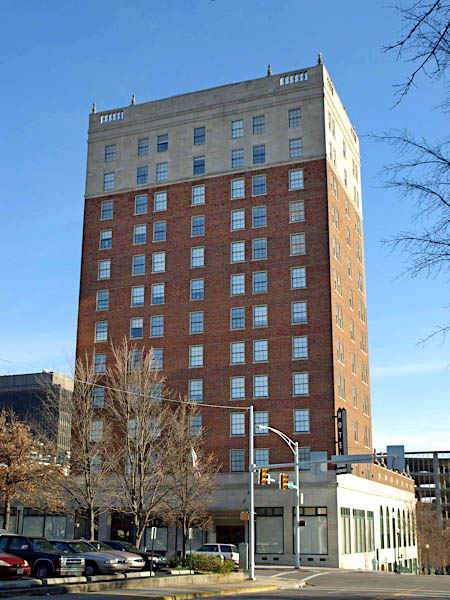 The Russel Erskine Hotel is an apartment building and former hotel in Huntsville, Alabama. It was named after Albert Russel Erskine. It was added to the National Register of Historic Places in 1980. The building currently houses apartments. From 1932 to its original demise in 1935, the Russel Erskine Hotel was home to the studios of the then Hutchens Company-owned WBHS (now WBHP), the first radio station and broadcaster in Huntsville.
The Russel Erskine Hotel is an apartment building and former hotel in Huntsville, Alabama. It was named after Albert Russel Erskine. It was added to the National Register of Historic Places in 1980. The building currently houses apartments. From 1932 to its original demise in 1935, the Russel Erskine Hotel was home to the studios of the then Hutchens Company-owned WBHS (now WBHP), the first radio station and broadcaster in Huntsville.
Albert Russel Erskine (January 24, 1871 – July 1, 1933) was an American businessman. Born in Huntsville, Alabama, he worked in a number of manufacturing industries before joining the Studebaker motor car manufacturing firm in 1911. He served as Studebaker's president from 1915 until the firm encountered severe financial problems in 1933, when he committed suicide.
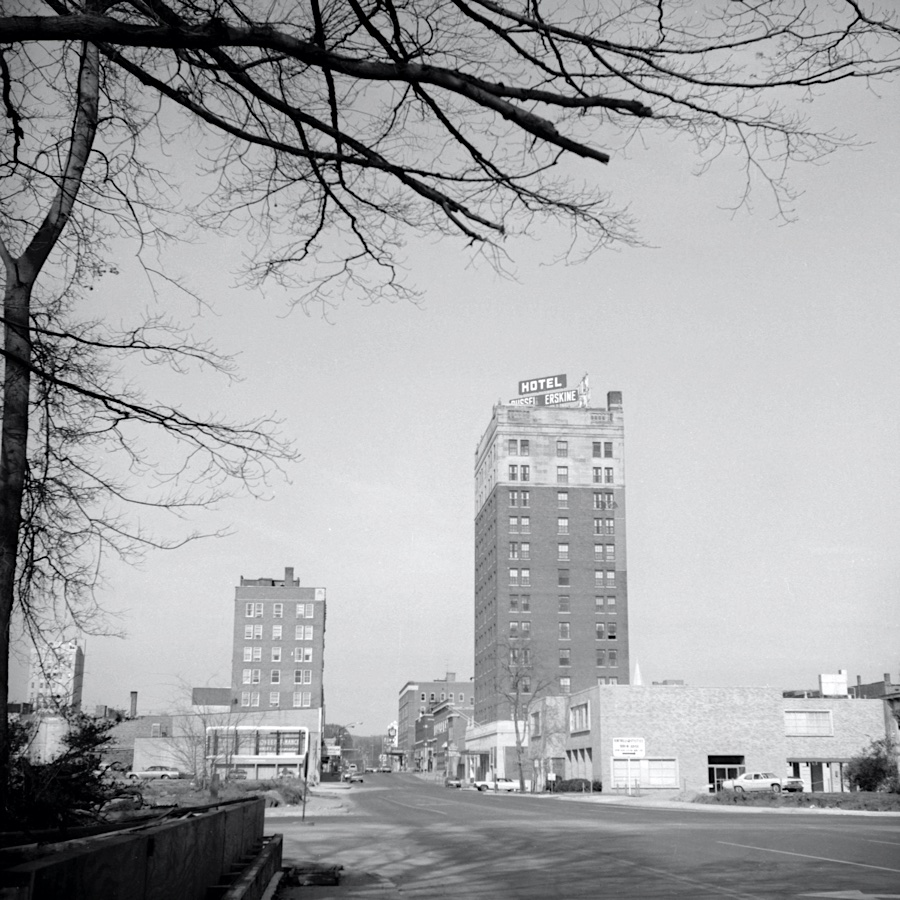
Huntsville, Al / Mar 1974 / JCH

Click to see the Hotel Russel Erskine building plotted on a Google Maps page
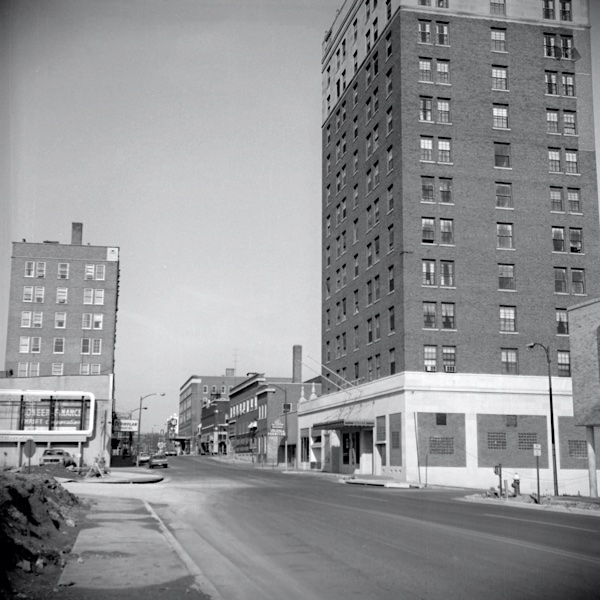
Huntsville, Al / Mar 1974 / JCH
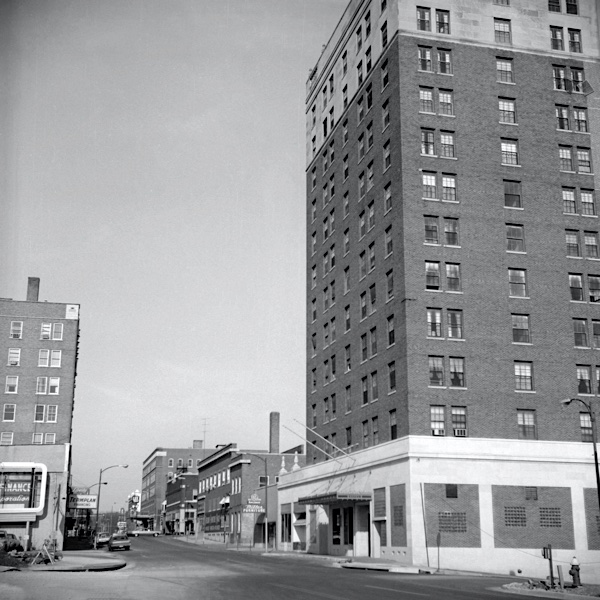
Huntsville, Al / Mar 1974 / JCH
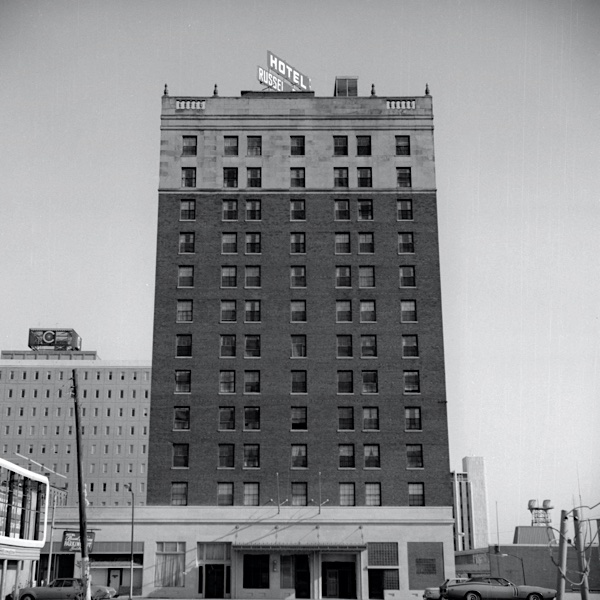
Huntsville, Al / Mar 1974 / JCH
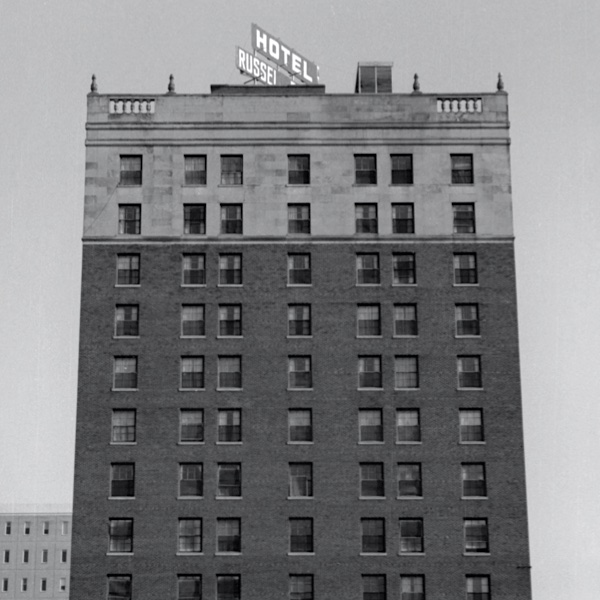
Mar 1974 / JCH
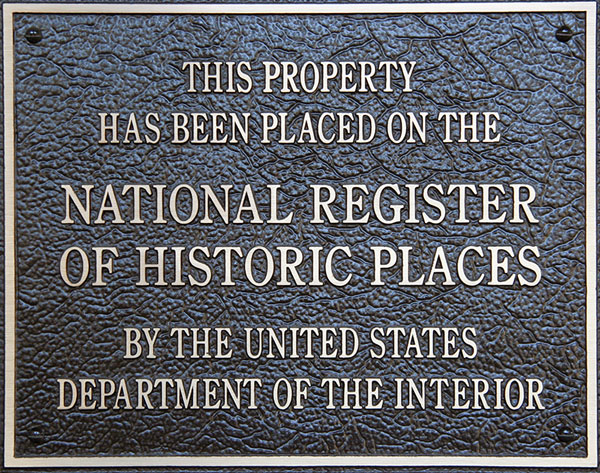
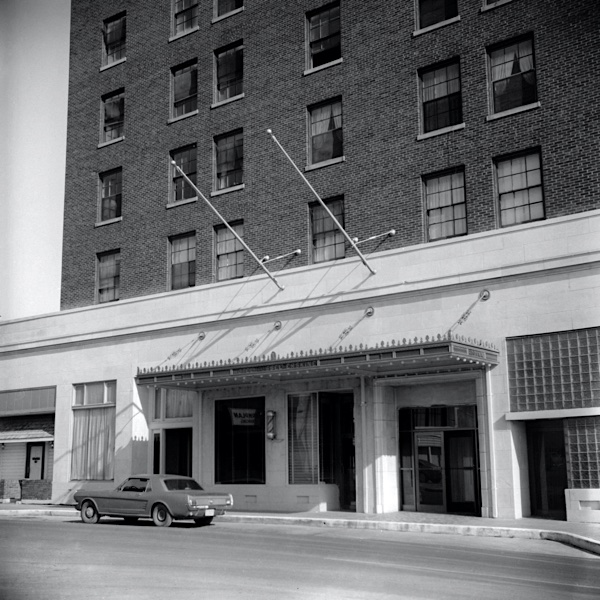
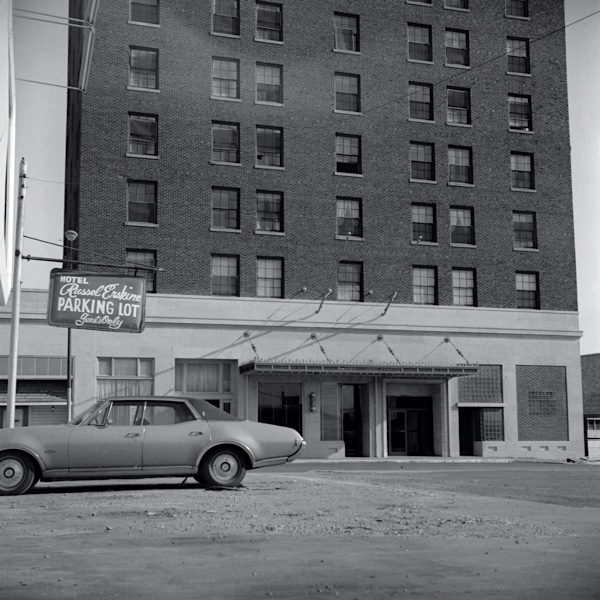
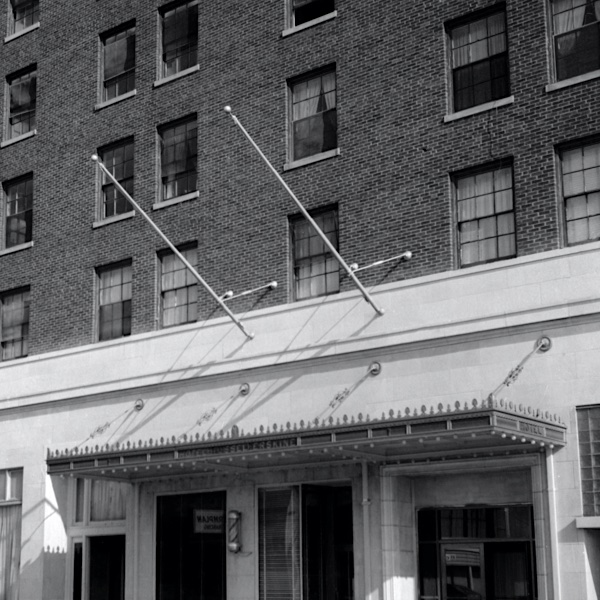
Mar 1974 / JCH
 Article
Article
The Russel Erskine Hotel was once 'Center of the Social, Civic and Cultural Events in Huntsville'
September 2018
HUNTSVILLE, Alabama - Close your eyes and hear the music. It's a symphony of rich music that sends couples in tuxedos and crinkly, flowing dresses whisking around the dance floor, with the undertones of ice clinking in highball glasses and the loud murmur of conversation in an crowded bar.
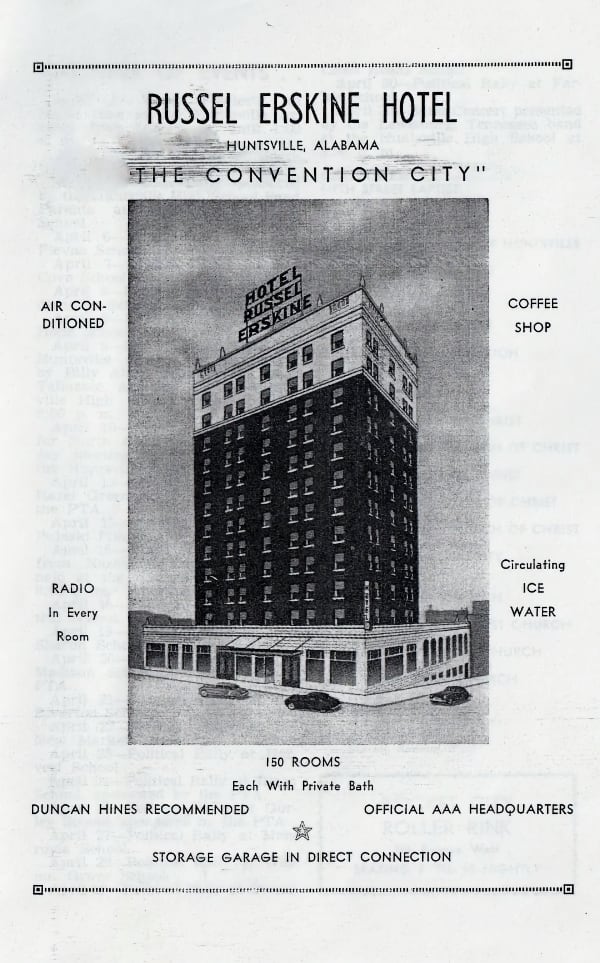 Hear the fountain in the lobby gurgling with water and merry laughter of people enjoying a night on the town and the aimless chatting of traveling businessmen stretching their per diem to cover a $7 room.
Hear the fountain in the lobby gurgling with water and merry laughter of people enjoying a night on the town and the aimless chatting of traveling businessmen stretching their per diem to cover a $7 room.
Step into the Russel Erskine Hotel and you're swept into a black-and-white world where fedoras are removed at the door and bellhops lug leather suitcases into hand-operated elevators over which floor numbers hang on a half-circle plate - G to L to M all the way to 12 - with an arrow moving like a clock's hand to mark each stop.
Once upon a time, the Russel Erskine Hotel, at the corner of Spragins and Clinton, was a Huntsville landmark, the most elegant place in town, a site for countless dances, social events and weddings, the host for visiting dignitaries like actors, entertainers and key players in the space program.
The late Jimmie Taylor, the hotel manager from 1947-1960, once told The Huntsville Times that a historical plaque should be in front of the building. He offered the wording: "On This Site the Russel Erskine Hotel Was Erected in 1929. This Hotel Was the Center of the Social, Civic and Cultural Events in Huntsville for 40 Years."
On this site, the Russel Erskine is now home to some 69 tenants. After a $3.8 million renovation more than 30 years ago, it is used by the U.S. Department of Housing and Urban Development as home for people who are 62 or over and who draw a federal subsidy.
The old girl still has her beauty. "Ornate" is the first word that jumps to mind, whether it be the three chandeliers dangling from the ballroom ceiling to the gold, shadow-script lettering on a transom window reading "Gold Room," a bar where a generation of Huntsvillians likely had their first legal cocktail.
Let's go back 56 years, when the Gold Room was teeming with rocket scientists and Huntsville helped launch Able and Miss Baker, a pair of monkeys, into space atop a Jupiter missile. An advertisement in "Huntsville's Doin's" in the summer of 1958 shows the Russel Erskine with four rockets in the background over its shoulders.
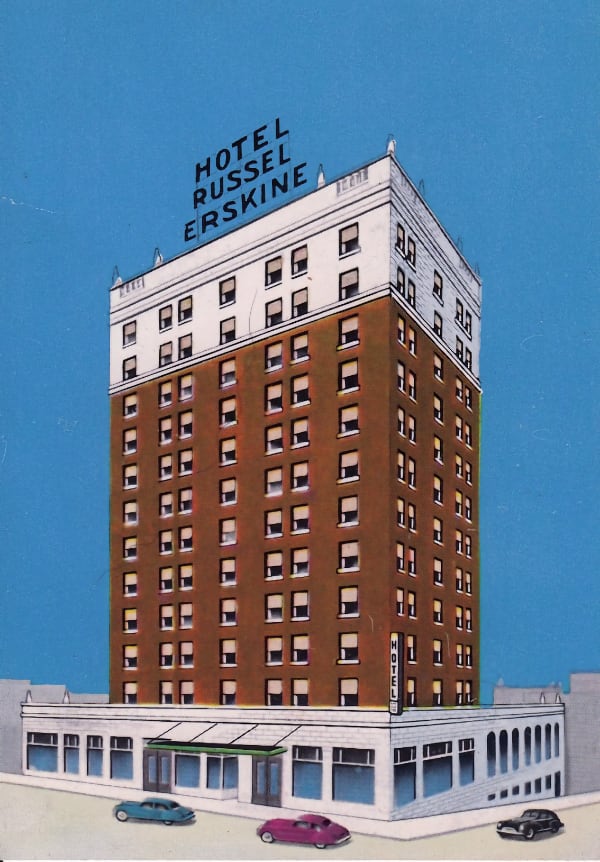 Who was Russel Erskine?
Who was Russel Erskine?
The hotel's name comes from automobile magnate Russel Erskine, a Huntsville native who became president of Studebaker Motors. Erskine is a story in his own right, maybe a book. The book might even read a little like a novel.
He was born in Huntville in 1871 to William Michael and Sue Ragland Erskine. He entered the cotton business, then began working for Underwood Typewriter Co. (typewriters, kids, were an ancient precursor to your iPad) and joined the Studebaker Company in 1911 in South Bend, Ind.
He climbed the corporate ladder and became a big benefactor for the University of Notre Dame. An avid football fan, he was bothered that all college sports but football produced an official champion, so he created the annual Albert Russel Erskine football award to a national champion picked by a committee of 30 sportswriters.
He became Studebaker's president in 1915 and oversaw its growth as a major player in the automotive business. He became one of the country's richest men.
Back home, some Huntsville business panjandrums constructing a 12-story skyscraper of a hotel downtown reached out to Erskine for financial banking. They thought if they named the hotel for him, he'd be generous with his checkbook. Though Erskine indeed invested in the project, it wasn't to the extent they had hoped.
The hotel opened in 1930, only a few months after the stock market crashed. Studebaker felt the pinch. People couldn't afford cars. Sales plummeted. Banks were unwilling to support Erskine's company and Studebaker went into receivership.
Distraught, Erskine shot himself in the chest on July 1, 1933. He is buried at Maple Hill, only a few miles from the landmark that still bears his name.
The Russel Erskine Hotels's glory days are still marked in a lovely, colorful painting in the lobby that is a carefree moment in the life of the hotel.
All manner of transportation - bus, car, bicycle and skateboard - are depicted in the Spragins-Clinton intersection, looking from the west. A couple sits on a bench outside, a poodle on a leash. A couple holds hands as they stroll. American and Alabama flags hang above the entrance.
The artist painted the hotel a vivid, lively red, up until the top couple of stories. There, it is different, lighter color.
With spires at the corners of the roof, there is no missing the resemblance. It's a crown, sitting atop what was once Huntsville's most royal building.
Mark McCarter / Huntsville Real-Time News
images HawkinsRails collection
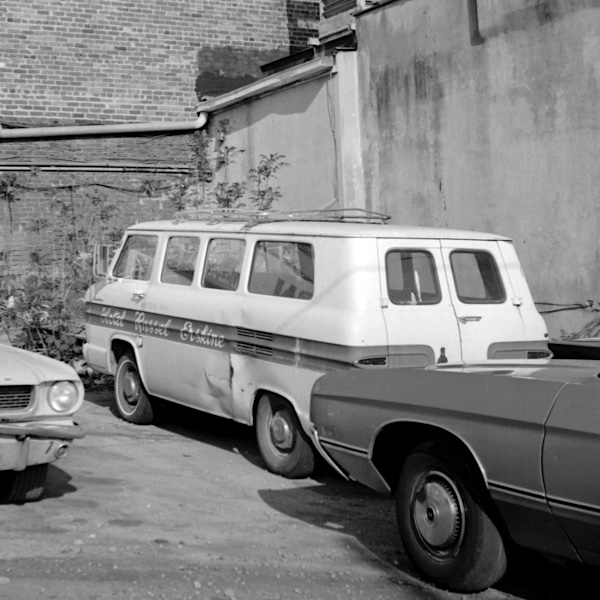
Mar 1974 / JCH
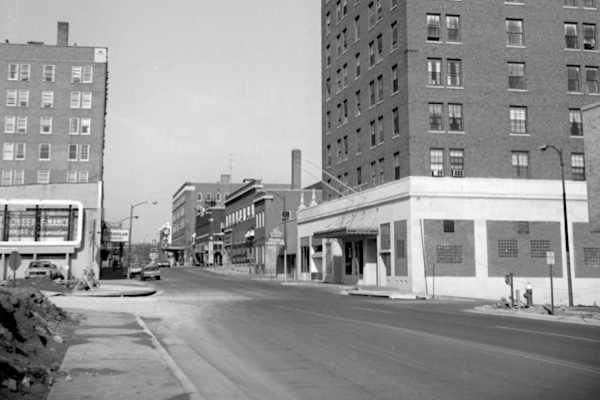
Huntsville, Al / Mar 1974 / JCH

